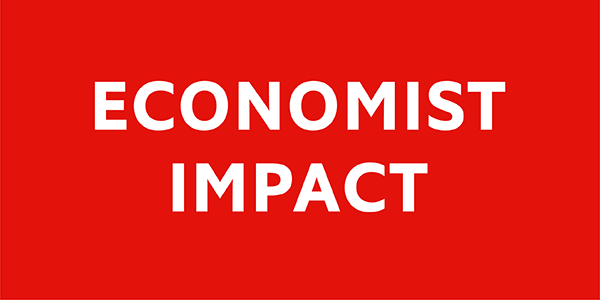Advertisement feature Custom content is written, produced or curated by either a sponsor or by EI Studios, the custom division of Economist Impact. Such placements are clearly labelled as Advertisement, Advertisement feature, Sponsored content, Sponsor perspective, or words to that effect wherever they appear on our website or apps. Neither The Economist news and editorial team, nor Economist Impact’s independent experts, have any involvement in the creation of this content.
The new face of crypto
The journey from start-up to unicorn took Amber Group less than three years. The company’s founder and CEO Michael Wu explains how its customer-centric ethos drove their hypergrowth success.
When Amber Group was founded in 2017, it started off with a simple belief: that technology could transform financial services into something more efficient, more seamless, and crucially, more inclusive. With this, they made it their mission to “make finance better for everyone”, according to the company’s founder and CEO Michael Wu.
It’s evident this raison d’être has translated well: in just under three years, Amber Group has rapidly transitioned from start-up to unicorn, hitting US$3bn in value in February this year.

US$3bn
In just under three years, Amber Group has rapidly transitioned from start-up to unicorn, hitting US$3bn in value in February this year.
The company started out by working with institutions, and today still provides them with sophisticated solutions that combine next-generation technology tools and insights. It also partners with other fintech companies, empowering them to offer digital finance services while contributing towards building a more sophisticated and sound financial infrastructure for the entire ecosystem. More recently, Amber Group has expanded its core offerings, pivoting to consumers with its accessible retail investment.
Two core reasons drove this shift, outlines Mr Wu. First, the company wanted to use their expertise and exclusive institutional grade products to better the lives of ordinary people. Second, there was a void to be filled. “Crypto exchanges have their value,” he says. “They’re very profitable, but I don’t think that they are the type of products most consumers actually need.”

With these factors in mind, Amber Group developed a platform that helps people build their wealth digitally—with crypto. As Mr Wu emphasises, they are a service provider, not a marketplace. What this means is that Amber Group doesn’t leave people to their own devices, but instead curates their portfolio, considerate of individual comfort levels.


Calling a technology innovation such as digital assets a double-edged sword, Mr Wu notes that while the digital assets industry “might be the most innovative industry in human history”, driven by open collaboration and decentralisation, these are also the same aspects making it challenging for consumers. “It’s very difficult and very confusing for the end customer,” he says. “They can’t differentiate what’s good or bad easily, and they can’t access the true value of digital assets easily.”
Another central tenet of Amber Group is building for the long term. As Mr Wu puts it, the company wants “to keep our customers forever”. So, rather than maximising the kind of short-term benefits crypto is known for, Amber Group wants to work towards stable, long-term wealth building. This has proven to be a successful approach:
Amber Group created US$500m of wealth for its customers last year, with this arm of the business growing by 40-50% month-on-month throughout 2022.

US$500m
The company’s sustainable ethos extends beyond people’s finances to also the environment. As well as partnering with four of the world’s largest whale and marine life protection agencies, Amber Group acquired Carbon Checkout, allowing consumers to offset the carbon cost of online purchases. According to Mr Wu, democratising access to carbon credits could be on the cards in the future too.


The most critical point that Mr Wu wants to convey is that Amber Group is “a different company from most of our peers in the space”. In tandem with making sustainability and inclusivity central, the company is “a lot more customer-centric” and “actually believes in the long-term benefits of this technology and wants to bring it to the world”. It’s a refreshing take on what is often regarded as an opaque, difficult sector—and one that could stand to transform the finances of people across the world.


 1
1
 2
2
 3
3
 4
4
 5
5
 6
6
 7
7
 8
8
 9
9
 10
10
 11
11
 12
12
 13
13
 14
14
 15
15
 16
16
 17
17
 18
18
 19
19
 20
20
 21
21

Content from Economist Impact
Whitepaper | Open access: the future of data portability
The importance of data portability for consumers, businesses and societies is growing globally. This report explores the legislative landscape for data portability at present, and examines consumer perceptions regarding data portability and potential data portability models.
Video | Open access: the future of data portability
This video explores the key findings from the programme covering the legislative landscape for data portability at present, and consumer perceptions regarding data portability.
Back to top













